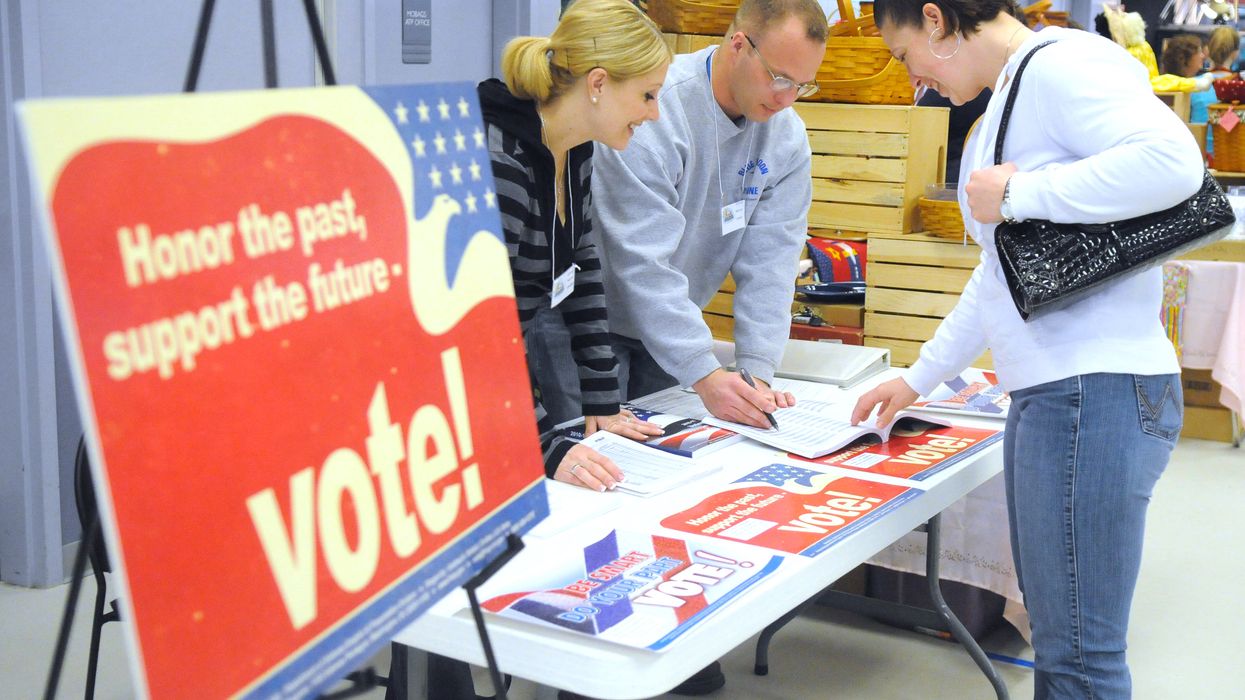The United States' political map changed quite a bit with the presidential election of 2020. Multiple notoriously Republican states turned blue as Democratic voters cast their ballots in an effort to ensure former President Donald Trump did not win a second term.
Now Republican lawmakers in various states are looking to implement more restrictive measures to make it far more difficult for voters to cast ballots in upcoming elections. The Brennan Center for Justice, a voting rights advocacy group, notes that since Feb. 2020, more than 165 bills in 33 states have been proposed to restrict voting practices.
According to Five Thirty-Eight, there are currently two key election bills that have been proposed in the state of Georgia: House Bill 531 and Senate Bill 241.
On Thursday, Feb. 18, lawmakers in Georgia's state House unveiled House Bill 531 only one hour before the hearing to discuss the proposed bill. The two bills have garnered lots of attention and opposition due to the lengthy list of line items they include, all of which would likely make it more difficult for residents to vote.
The publication highlighted that House Bill 531 aims to bring a number of additional voting requirements into legislation including:
- Require absentee voters to submit their driver's license number, state ID number or a copy of their photo ID with their ballot.
- Shorten the window in which voters can request absentee ballots; they would have to do so between 11 weeks before the election and two Fridays before the election. (Under current laws, Georgia residents have the right to request absentee ballots up to 180 days before the election and one Friday before the election.)
- Prevent election officials from mailing absentee ballots until four weeks before the election.
- Bar election officials from mailing unsolicited absentee-ballot applications to voters.
- Limit the early-voting period to business hours during the three weeks preceding the election, plus the second Saturday before the election; early voting would no longer be allowed any other day, including Sundays.
- Clarify that no one can give food or water to people standing in line to vote. (Separately, Republican Secretary of State Brad Raffensperger has argued that this is already against the law, and he has announced his intention to start enforcing it more.)
- Allow ballot drop boxes at early-voting sites only, and only when those sites are open.
- Limit the use of mobile voting facilities, such as buses, to emergencies.
- Throw out provisional ballots cast in the wrong precinct.
- Prohibit counties from accepting outside funding for elections.
On Tuesday, Feb. 23, Georgia state Senate lawmakers also unveiled their bill which aims to implement more voting barriers to restrict voting practices and absentee ballots. Under Senate Bill 241, Georgia residents would be required to do the following in order to vote: The latest efforts in Georgia underscore Republicans' concerns about the impact of Democratic voters and how they could change the face of American politics in the years to come.
- Require that voters have an excuse to vote absentee — Lawmakers are demanding this change be implemented despite Georgia residents being allowed to participate in no-excuse absentee voting since 2005.
- Require a driver's license number or state ID number to apply for an absentee ballot on paper (this is already required to apply for one online).
- Require absentee voters to get their ballot envelope signed by a witness and enclose a copy of their photo ID with the ballot.
- Empower the state to remove local election officials from their posts.
- Also limit the use of mobile voting facilities to emergencies.
Since 1988, the Republican Party has only managed to win the popular vote in one presidential election, which was the 2004 re-election of former President George W. Bush. The trend in political party preference signals a long-term issue for Republicans.


